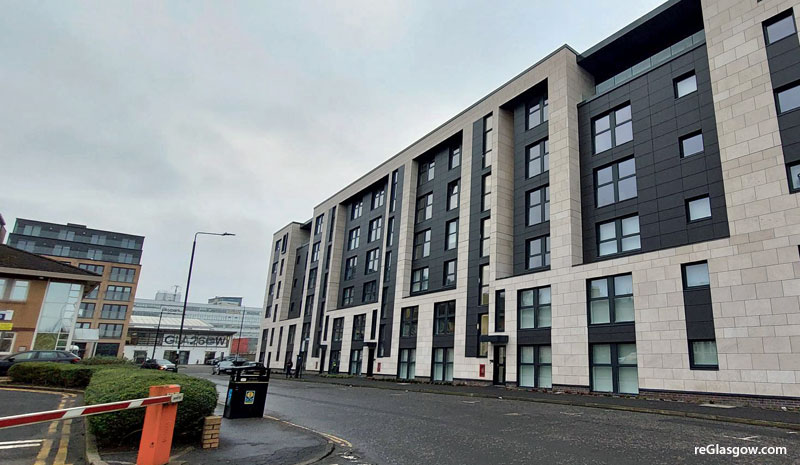
AN appeal has been lodged over Glasgow City Council’s rejection of a plan to use new flats in Finnieston as serviced apartments.
In April, councillors on Glasgow’s planning applications committee refused Sonder Hospitality’s application involving 41 apartments at 3 to 7 Minerva Way. More than 120 objections had been received and city planners had recommended refusal.
The flats involved are among 108 units built so far in a development on Minerva Street/Minerva Way.
Sonder Hospitality is now hoping a reporter appointed by the Scottish Government’s planning and environmental appeals division will overturn the council’s decision.
Their grounds-for-appeal document states: “The proposal is supported by national policy and is compliant with the [city’s] Development Plan subject to appropriately worded conditions. No internal or external consultees have objected.
“The Reasons for Refusal appear to be based on concerns raised by local residents. In the absence of evidence of actual problems, those concerns appear to be based on perceptions, which perhaps misunderstand the nature of the use; and assume, incorrectly, that serviced apartments inherently impact on amenity more than residential use.”
A report by planning officials had stated: “There is a distinction between changing the use of a whole block of flats with their own dedicated access, backcourt and supporting facilities into short-stay serviced apartments but what is proposed here is to change part of a building (designed and consented as a single residential development with communal bin stores, cycle parking amenity provision and vehicular parking in a shared residential backcourt) to a non-residential use whilst continuing to rely entirely upon the communal facilities of that same development to facilitate the new use.
“The proposed short-stay apartments would utilise the residential vehicle access, residential bin stores, residential cycle parking provision and residential car park, all whilst encouraging pedestrian and vehicle access through the residential backcourt.
“Coupled with the clear overlooking and privacy issues that would result to the private residential amenity space, there is no other conclusion to be drawn other than that the proposal will detrimentally impact upon the residential amenity of adjacent residents.
“Given that the applicant was already operating the proposed use without consent, until action was taken by the planning authority, we also have clear evidence that the proposal will be disruptive to residential amenity.”
The report continued: “Putting aside the wider concerns of the surrounding community, it was the new residents of G3 Square who complained about the unauthorised use and whom, having already experienced short-stay tenants in their private residential spaces, objected in significant numbers to this application.
“Of the 64 flats containing new residents in this development, 33 have objected to this proposal. None of the new residents of the development have submitted a letter of support.
“Even were we to set aside the issues of residential amenity and substantial body of community objection, the failures in the method and detail of this submission mean that the only competent decision is to refuse this application.
“In light of the proposal’s unacceptability in terms of the Local Development Plan, the failure to include any supporting facilities within the application site boundary, the detrimental impact on adjacent residents and the lack of any material considerations which outweigh these issues, we respectfully request that committee refuses this application.”
A management statement included with the application explained: “[Sonder’s] aim is to redefine hospitality through technology, with a focus on improving efficiencies by providing traditional hospitality functions via a 24/7 guest app.
“The app allows guests to check-in, request cleaning and get other amenities, all from their mobile.”

